One of the popular revolutionary songs of a hundred years ago claimed that the old and outdated world supposedly needs to be destroyed to the ground, so that later, on this foundation, a beautiful and shining new world can be built. Needless to say, all these attempts didn’t end well?
However, the foundations on which our world has been standing for decades now seem to have become quite dilapidated, and are frighteningly close to collapse. And it’s far from certain that you and I will like what will rise in the place of these ruins – be it technology, architecture or social institutions. So now please welcome to this new list made for you by Bored Panda!
More info: Reddit
#1
Antibiotics. Should see a rise in deadlier and deadlier bacterial disease along with the resurgence of previously very curable bacterial disease.

Image source: senpaitono, photoroyalty
#2
My goddamned patience.

Image source: Parapraxis2077, freepik
#3
AI is coming for white collar jobs and companies are greedily pushing how far, how fast they can go while minimizing staff.

Image source: phoenix14830, Hatice Baran
#4
Water infrastructure. It’s long overdue for work. There’s tar, rust, mid, and rat s**t.
C_Alan:
I’m a civil engineer, and I see a lot of this. Let me lay out the problem for you.
A housing development is completed in the 1970s. All the pipe, valves, tanks, and wells are part of the project. The developer sets up a small water company to run the system, and the board members are part of the community.
The board members run the water company on a shoe string budget because if they raise rates, they are voted out.
It’s 50 years later and the system infrastructure is now on its last legs. They have done some well maintenance over the years, but now the steel casings on the wells are starting to collapse, and the main tank is corroded badly. The water company has no reserves to replace anything because they only ever raised rates to cover operating expenses. The board is hoping the state or will give them grants to replace their infrastructure only to be told that they are not eligible because they still have a functioning well.
So now they have to try to go finance the improvements, but they don’t have any assets other than their small customer base. To cover the finance cost, the board is forced to raise rates, which gets half of the voted out. This delays the improvements a couple of years until the new guys are finally convinced they are not fixing their system without a rate increase… and then rates triple. To hear they customers whine you would have thought we [ended] their dogs. No, it was all the result of poor planning.
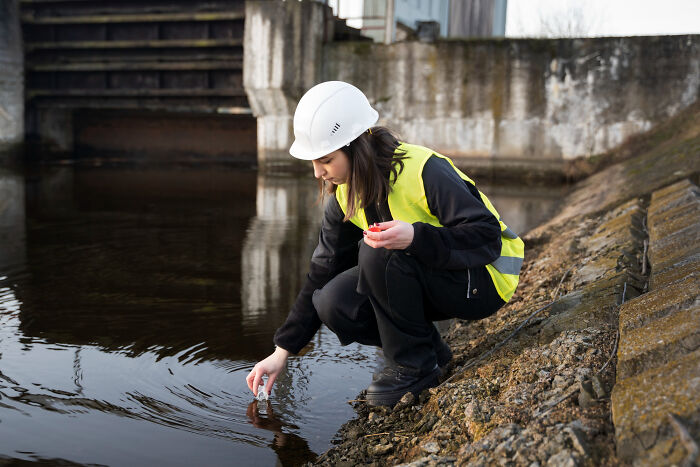
Image source: TRtheCat, freepik
#5
Insect populations.
TN17:
On a positive note I reckon we’ve had a massive bounce back in the UK this year.
I think a type of pesticide was banned last year, and we all planted wildflowers and didn’t mow our lawns.
They’re everywhere. Windscreen is covered again. My plants are all infested. It’s great to see the twats out in numbers again.

Image source: Harbuddy69, EyeEm
#6
Perhaps personal privacy. I bought some “snowballs” (a snack cake) from Walmart. The same day there was an ad here on reddit, for the same thing. Did they share data ? We are giving our preferences (like on Netflix) to someone’s enormous database and the AI is probably right now trying figure how I am going to vote.

Image source: EvolutionIsRight, Andrej Lišakov
#7
Senior care and skilled nursing facilities.
audiofarmer:
As someone whose mother is getting to that age, I’m dreading it.

Image source: Bbangssaem, Getty Images
#8
Depending on what you mean by dangerously close to collapse, perhaps the the Ogallala Aquifer, a massive underground water source in the American High Plains. It is facing a critical threat of depletion due to over-extraction for irrigation, supports US$35 billion in crop production annually, and is being drained faster than it can naturally recharge. The long-term consequences include potential damage to local communities, declining drinking water supplies, and the potential for irreversible damage to the aquifer.

Image source: Unlucky_Standard_212, freepik
#9
Thwaites Glacier, also known as “The Doomsday Glacier”. It currently is responsive for 4% of annual sea level rise, and its collapse will lead to approximately 25 inches of sea level rise, displacing billions of people.
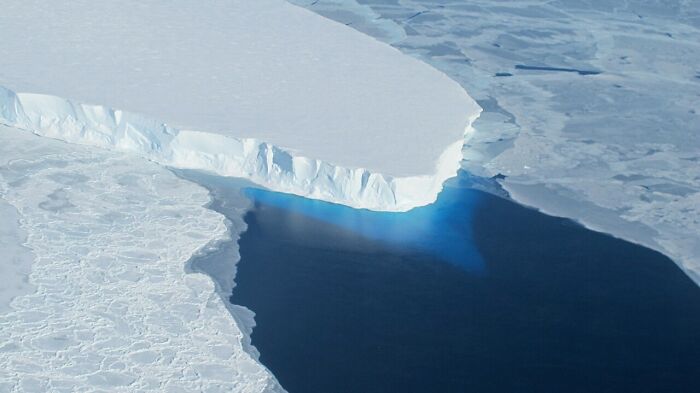
Image source: Cultural_Bison_6306, NASA
#10
Public Education.
anonymous:
More over, higher education. We’re entering an incoming student cliff and numbers of new students will decrease all while higher ed has grown in size, complexity, and cost.
All but the best state schools and good private schools are going to go through a decline phase. Some won’t survive.

Image source: Due_Personality6726, Curated Lifestyle
#11
The electrical grid is a lot less modern than you probably think, and isn’t hardened at all against intentional malicious tampering. Largely the only reason we haven’t seen targeted blackouts yet is just that those who have the ability don’t have the motivation to cause widespread damage.
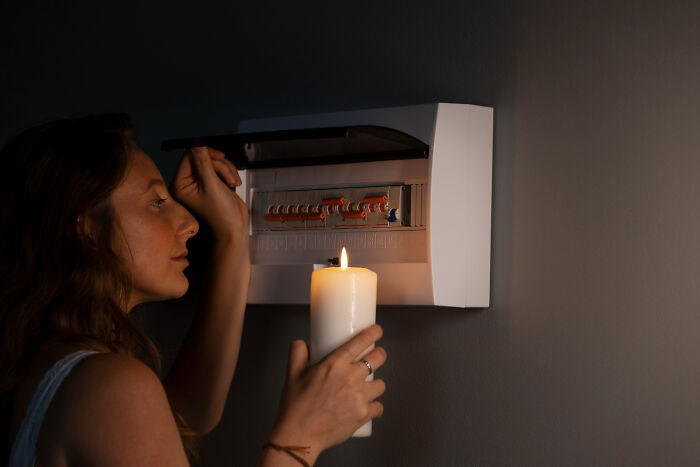
Image source: afschuld, freepik
#12
I have read that the managers of the New York subway mostly pray they’ll retire before it fails. It’s got a lot of period 1930s equipment and you just *can’t* take a major line down long enough to upgrade it.

Image source: thrownalee, managers
#13
No politics involved but America’s bridges. They’re grossly undermaintained and have been in dire need of revamping for close to a decade.
Monotreme_monorail:
As someone that works closely with this kind of infrastructure, the answer is easy. Maintenance isn’t s*xy. It’s kind of like housework. Nobody notices when it’s done well, but if it’s not, the consequences are pretty clear.
Politicians like big new projects. They can cut ribbons. Everything is shiny and modern. Nobody cuts a ribbon when you replace structural components or clear out ditches and culverts or repaint road lines.
So. That stuff suffers while the Shiny New Thing eats up the budget.
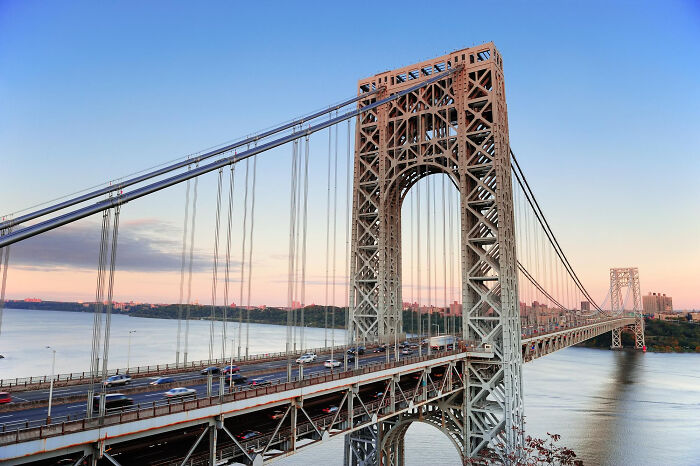
Image source: the_real_shit, TravelScape
#14
The movie industry is I think tetering on the edge way more than people think
These $200 million movies with $100 million in marketing just arent sustainable. The current theatre model for movies is dying. Rude patrons, cell phone use and people constantly talking during movies is [hurting] the theatre. A lot of moviegoers have no respect for the people around them like they used to. Add in broken down seats and overpriced concessions and going to the movies is becoming a disaster
Tickets and snacks is now running close to $100 for a family of 4 that I can rent for $24.95 at home within a few weeks of theatre release.
Most movies now are sequels, remakes, or reboots of old movies. There are very few unique storylines in Hollywood anymore.
I can get a fantastic projection tv system that goes to a 150 inch tv with a full surround sound 8 speaker system for under $5000 now. And I don’t have to put up with all the c**p from other rude patrons at home. Theatre style kettle popcorn maker for under $100.
And I can pause it when I need to go pee.
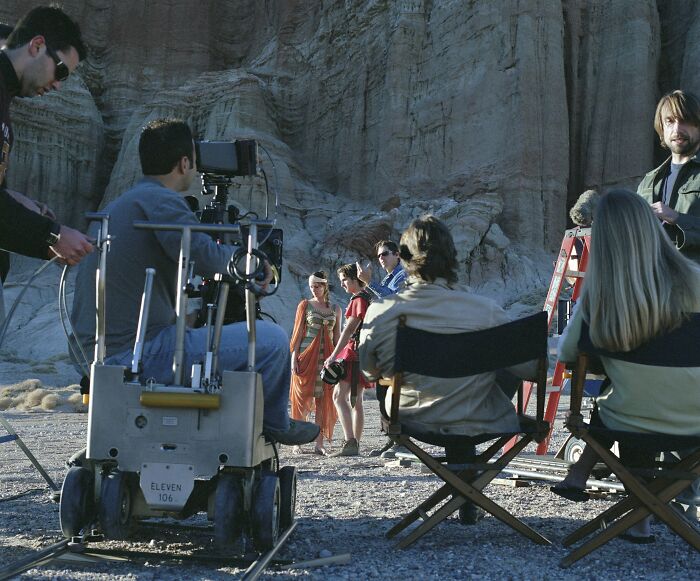
Image source: bevymartbc, Getty Images
#15
Literacy rates and reading comprehension rates.
PryingMollusk:
I live in Australia and it’s amazing how many kids just kept rolling through graduation from year to year who could barely read or write. Don’t you have to … pass a grade to progress?!

Image source: plageiusdarth, rawpixel.com
#16
Public schools in the USA.
Been teaching 14 years. I’ve always loved it, even the hard parts. I don’t know any teachers who still really have their whole heart in it anymore, we are all emotionally checked out, burned out beyond repair, exhausted and barely getting through. None of us are in it for the money, so if we also aren’t there for the personal fulfillment anymore I don’t know how long the health insurance will really keep us in the profession.
Many districts are facing continuously declining enrollment. That means less money each year, so everything gets a little (or a lot) shittier. Unless there’s a total overhaul of how we fund schools, this is a death spiral. School buildings are crumbling and overcrowded.
The kids are not okay. COVID broke the world and while I guess a lot of adults can overlook that it’s glaringly obvious in a school setting. I don’t blame kids or families— it’s deeper than that. We have been collectively failed by our government and it is our kids who are suffering. They don’t know how to function in a community. There’s an epidemic of mistrust, expertise and reliable information have lost all credibility, and the normalization of AI has eroded any sense that learning is even worthwhile.
Our public schools should be the glowing centers of our communities. We should be proud of how much we spend on education, because it should matter to us that our children are able to do incredible things. We should brag about how beautiful the new middle school is and how every kid has access to the best books and equipment in every classroom. My neighbors should be excited to pay my salary and fund my classroom projects instead of having been convinced that my union exists to steal their taxes.
Free public education is the best idea anyone has ever had. There are a million systems and structures within it that I desperately want to change, but the central concept of allowing every kid in America to learn enough to be able to dream big is f*****g beautiful and I’m not ready to give up on it yet. I hope we can come together and turn the tide.

Image source: QueerTree, freepik
#17
Reddit: where bots debate bots and we all pretend it’s fine.
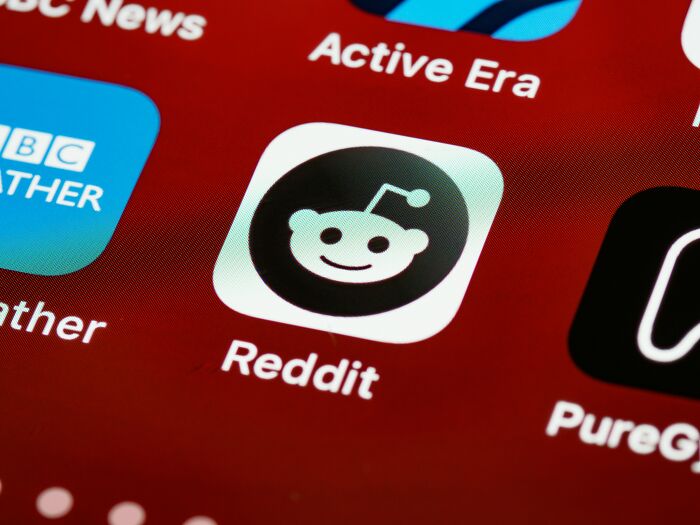
Image source: gigachadxl, Brett Jordan
#18
The entire research enterprise in the US. Many grant supported projects, even those that still have funding, have not been reimbursed by the federal government for weeks to months. Schools are going to extraordinary lengths to make it work, but eventually the bill will come due. I cannot overstate the damage this will cause if it’s not resolved. Machinery, technology, biological samples, massive longitudinal cohorts, everything many people don’t realize that drives 1.9 trillion dollars of GDP (directly and through the resulting commercial ventures) is crashing down. It’s sad. I’m sad. I’m a scientist.

Image source: utopiaman99, Getty Images
#19
The USA.

Image source: anon, iStrfry , Marcus
#20
Earth’s biosphere.
Insects are disappearing, which will snowball up the food chain until food is effected, which will balloon already high food costs before becoming scarce altogether. But at least a few wealthy mega corps got to enjoy record quarterly profits for awhile longer. Sleep well.

Image source: FlavorBlaster42, Dulcey Lima
#21
The ocean. Kelp forest and coral ecosystems collapsed in about 2019. See nobody cares.
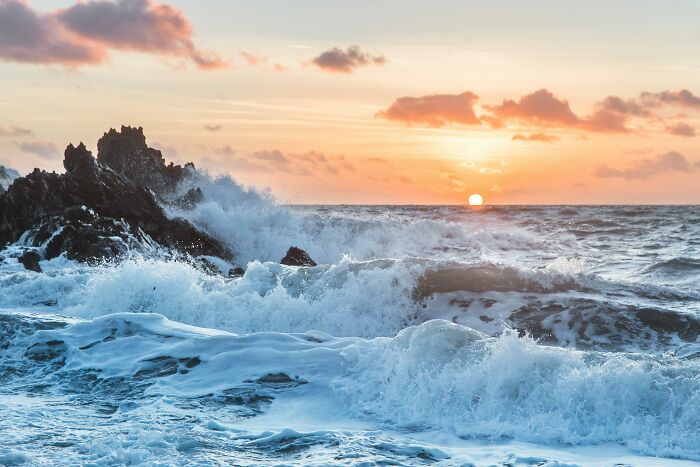
Image source: Kadugan, Joshua Earle
#22
*Gestures broadly*.

Image source: LarryDavid2020, Kermit The Frog
#23
Home security systems.
I used to install alarm systems. Before we would hardwire everything. Every sensor, and connection to phoneline. Camera systems were also hardwired and recorded locally.
Then people stopped having home phones and burglars would sometimes cut telephone lines before breaking in. So everything went cellular for communication.
Over the years big companies like ADT didn’t want to pay for trained and experienced installers and service technicians, so they started installing wireless sensors. Because it takes almost no training or experience to install or repair a system like this. Just plug and play, super quick installations, no wiring to worry about, hardly any liability related to accidents in installations, no drilling or going into attics or crawl spaces. Way more cost effective for them, especially since ADT also owned the manufacturering companies that made the products.
Then people started install wifi cloud based cameras like ring and arlo. That ceased to function if they lost connectivity. Versus hardwired cameras with local DVRs.
Everything got easier and faster and streamlined.
Only problem is that what this means is the entirety of someone’s security is contingent on open air communication of wireless signals.
Now you can go online and buy cheap jammers that will k**l: Wifi, 4gLte, and wireless alarm sensors.
Before you would have to cut phonelines and disable sirens, and take dvrs with you to circumvent a person’s security system.
Now in the majority of homes you can just turn on a high powered portable jammer and walk right in. The alarm wont trigger, because the alarm panel can receive signals from the sensors because of the interference. Even if it does, it cant call the police because the cellular signals it sends are being blocked. And wifi cameras wont even leave you with any usable footage.
Worst yet, alot of small buisness are set up this same way. Not all, alot still do hardwired. But every day more and more are being upgraded to wireless equipment, less hardwired systems are being installed.
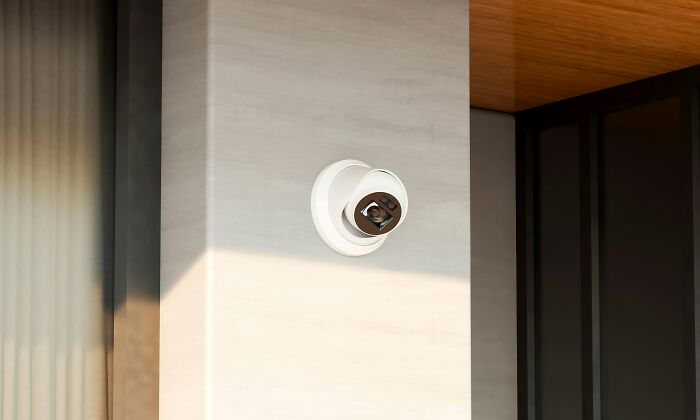
Image source: kalel3000, Imkara Visual
#24
Not sure if this qualifies, but as an American, if you’re the child of a baby boomer, you should not expect to receive much if any inheritance. I work in elder law. Baby boomers are living much longer than the generations before them, yet many will require assisted living soon. ALF can cost 10-15K a month. Plus medications and everything else. So, if you’re hoping for an inheritance, now is the time to make a different plan. I know this is grim, but I thought it might be relevant.

Image source: TakaguraDojo, zinkevych
#25
Water levels in the Great Salt Lake. We had a couple winters of good snowfall to delay things, but the trend is pretty clear. Without some major interventions, we’re likely going to see the collapse of the brine shrimp populations, which in turn will mean millions of dead migratory birds piling up. As levels continue to decrease, all the toxic mining runoff that’s accumulated over many many years will steadily become airborne as the mud turns to dust. Cadmium, arsenic, cobalt, lead, and all kinds of c**p will accumulate in your lungs just by breathing. The entire valley will likely become completely uninhabitable within a couple decades.
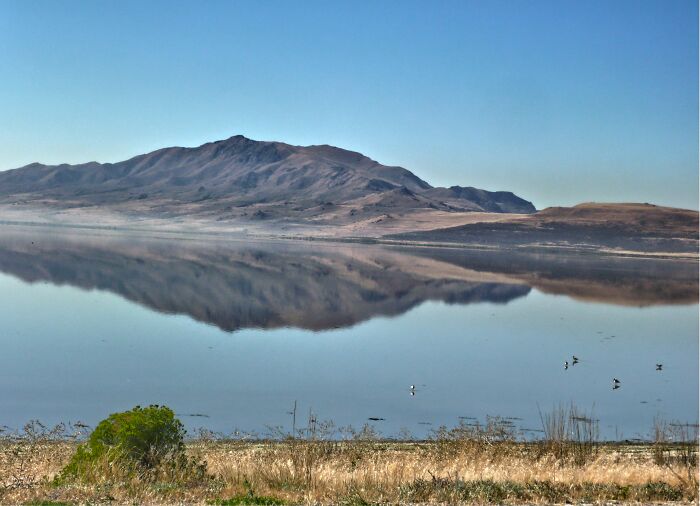
Image source: sinister_shoggoth, Pascal Bernardon
#26
The health care system.
Wild-Albatross-4173:
As a nurse I would second this. It’s baffling to me how things are still functioning
Image source: wild-fury
#27
The function of government and its ability to actually do what is required.
I work for a crown agency in Canada that has 3500 employees and 600 managers. Think about that ratio for a moment.
The reason your government service levels are eroding is because of the top heavy management all needing people to fill in their excel spreadsheets all the time. Everything is about administrative results. It’s nothing but meetings, always in the middle of the day, on the managers schedule, which interferes with the flow of work cause you’re always having a meeting.
During Covid managers did nothing but zoom meetings coming up with work projects for the staff. But then they realized they had to wait for the work to come back for review. So what did they do to look busy? Come up with more projects of course.
The never ending cycle of new “innovative “ ideas hasn’t stopped since and all staff just roll from one from managers pet project meetings to another at the sacrifice of the work they were hired to do.
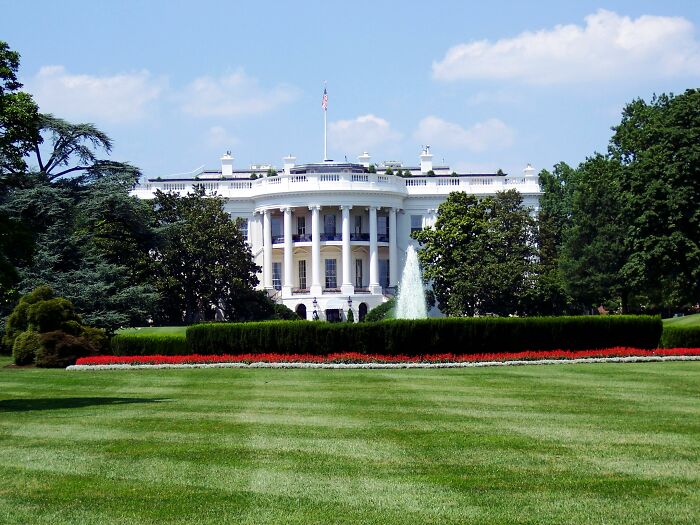
Image source: Upper_Knowledge_6439, Aaron Kittredge
#28
Telecommunications infrastructure.
Construction has a limited view of the regional network, and is usually lacking technical expertise, and all the folks who were patch working it together on the engineering side got laid off for Indian subcontractors.
BTW, it’s not one ISP but all of them.
Image source: BigRed1541
#29
During the chip shortage I kind of had a change in my job description from what I regularly do, to “checking constantly for certain chips on shadier and shadier websites in China and asking clients to up their buy from 2X normal to 10X pricing if you are lucky”… The point being, everyone was scavenging weird shady warehouses for parts they always expected to get from tier 1 suppliers, product lines that weren’t THE most profitable lines from Texas Instruments etc were canned. Meaning a LOT of engineering was done on hardware to make the parts shortage “invisible” to consumers, you only heard about the chip shortages in cars mainly. But, you were THIS close to having chip shortages for toasters, microwaves, other consumer electronics etc on a massive scale.
Then everything went back to normal just-in-time B.S. and we’ve done not a thing to secure the supply chain again.
Edit: I forgot to mention, since the people we were dealing with were overseas scalpers, the value of me doing the shopping was that I got to buy under my tiny engineering firm’s name instead of Client’s globally recognized brand so that the price wasnt 20x regular (that they probably would have been forced to pay).

Image source: ExternalDeal4856, xb100
#30
The advertising industry…soon we will just have a bunch of AI bots advertising to each other as humans are disenfranchised (edit: disillusioned) by the Internet and social media.
So, extension of the dead Internet theory.
Image source: TemperatureTop246
#31
Myself.
Blorp_son_of_Plorp:
I feel close to falling apart myself. Been this way for a long time. I’m not sure why, but a line from a fantasy novel by Brandon Sanderson has kept me together for over a year now: Ten spears go to war, and nine break. Did war forge the spear that remained? No war only identified the spear that would not break. My trauma, my past, even my fight, don’t define me. They didn’t make me and they don’t make me. They just show me that I haven’t broken yet. Remind yourself that. You haven’t broken yet. You’re still here.

Image source: Cheap-Creme5131, freepik
#32
Fuel pipelines in the usa. Most people don’t even know how many pipelines there are. They are old and they are leaking everywhere. There is a pipeline running to every airport, bus terminal, train station, facory, and who knows what else. You have to dig deep but you can find some pipekine maps. All of those pipelines are 80 years old and they leak into the ground. The only way that pipeline leaks get detected is when people actually find them. The conpany that runs them is not searching for leaks. The only way they can test a section of pipe is to shut it down and pressure test it. They will not ever do that voluntarily. Too nuch money lost. People find leaks when it leaks into their well water or when it pollutes a river. These companies do not care about the environment. They are prepared to be sued, and they expect to be sued.
Image source: SkullFoot
#33
Universities. The recent cuts in science funding and other state cuts are going to drastically change the way universities operate. I also think with AI and the cost of tuition, traditional higher education is going to have to do some soul-searching to keep alive. Many young men don’t want to go to universities anymore either.
Image source: theprostateprophet
#34
Not currently, but in the 2008 financial crisis people don’t recognize that we were mere hours away from the ATMs stopping to work and an old fashioned bank run. It would have been a total collapse of the financial system a la 1929, but global.
The Fed guaranteeing the money market funds wouldn’t ‘break the buck’ and (to a lesser extent) lifting the ~~$250k~~ $100k cap on FDIC insurance prevented that at the 11th hour.
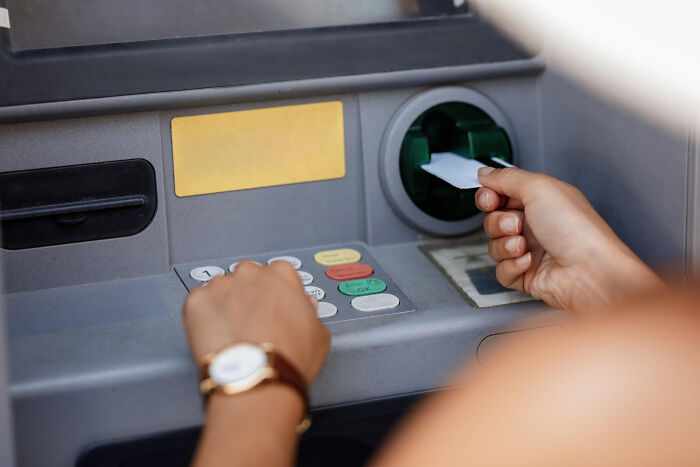
Image source: toorigged2fail, Drazen Zigic
#35
Society.
Covid should have brought us together. It should have unified the globe.
Everyone is just out to get theirs now. Late stage capitalism couldn’t have asked for a better event.
Image source: Chef_Writerman
#36
The wind turbine industry, and possibly the entire power generation industry as a whole in a few years, possibly.
How many turbine manufacturers can you name off the top of your head? How many are in the market? Like large wind turbines, the ones that power the grid, not the little ones you have that can maybe charge your phone over 3 days.
One of those companies is Gamesa. They were bought out by the energy division of Siemens a few years back, and Siemens sold off their energy division to operate by itself a few years after that.
Alright, so new company, not exactly a small company, but not exactly under big Siemens’ protection anymore.
So Siemens Gamesa as they’re known now tried a new design with their turbines. It worked great. It sold well. Really well. *Too* well.
There was a critical flaw in the bearing. You know, the single part that holds the spinny bit to the not spinny bit. The part that would send the blades flying across the place if it broke.
It wasn’t a maintenance issue. It wasn’t an installation issue. It was a *design flaw.*
So there were really only two options for SE Gamesa. Recall pretty much every single turbine they’ve sold, or pay to maintain and replace every single turbine they’ve sold for a good chunk of their lifespan.
As you can guess, this is not exactly great for their bottom line.
Siemens Energy makes around $2 billion in profit each quarter. SE Gamesa loses around $1 billion dollars in profit each quarter, and that number’s only been growing due to other issues discovered.
There’s really only 4 manufacturers of large gas turbines around the world. LGT’s are vital for the grid because of *ramp rates,* because we don’t exactly have a great way to store excess electricity right now.
To put it in a really simplified way, your power production must perfectly match power demand, otherwise the *frequency* of your AC output goes out of sync. Too much power, and AC frequency goes too high. Too little power, and the frequency drops too low.
All it takes to fry most electrics is 1hz out of tune. Everything would fizzle, pop, and possibly explode. Your phone charger and laptop, though they can be replaced. How about, oh, I don’t know, every single traffic light, hospital computer, radio towers and quite literally everything plugged into AC power?
So like, yeah, you have to match production with demand.
This is why solar, wind, and other renewables are not able to fully replace fossil fuel and hydro power. They are unpredictable, and the fast ramping fossil fuels can pick up the slack when, say, a cloud moves in, or the winds slow down.
Natural gas turbines are generally considered the cleanest and most effective of the fast ramping power plants – coal is cheaper but more dirty, nuclear is much cleaner but super expensive and political (“hi, we’re building a nuclear power plant next door”), and hydroelectric dams are amazing but you can’t exactly dam up a river that people have built a city on. This is why almost every local and state level government have been replacing coal plants with natural gas plants.
So, if the Siemens Gamesa fiasco gets any worse, Siemens Energy as a whole could go under. Demand for gas turbines have also been skyrocketing due to data centers and AI, so they’re filling their order books with orders that they cannot deliver as to not lose market share. Eventually it would reach a breaking point – would you stick around in a line for a movie if the queue was 3 weeks, even if you’ve paid a $5 deposit?
Of course, the reasonable response for any company with *too much demand they cannot keep up with* is to expand. Er, problem.
It takes money to expand. Gamesa’s eating all of that up.
So they’re bleeding cash, writing checks they cannot cash, but at least they’ve got demand and could expand slowly over time?
TPG is a private equity firm. I do not need to tell you how bad PE is for a struggling corporation. They saw the Gamesa situation and stepped in and bought a bunch of shares in it.
What did they do to make things better?
Gamesa released a press release saying how they are divesting in the Indian market. What they actually said was that TPG forced Gamesa to transfer its orders to other companies that TPG owned. In short, TPG cannibalized Gamesa’s order book in one of the fastest growing markets. And remember, Gamesa had their best quarter since like 2020, and they’ve still lost a billion dollars this quarter.
So imagine you have a hot dog stand. You randomly decided to buy a lemonade stand one day – and it’s eating half of your profits. Profits you would have spent expanding production of your hot dogs, which are selling out like crazy. You spend money from hot dogs you didn’t even deliver yet to expand your market – all while a private equity firm is directing your customers to a different company’s hot dogs stand. The very private equity firm that now owns a good chunk of your own hot dog stand. And is eyeing up buying another big chunk.
I’m not saying that there would only be 3 companies to buy large gas turbines from, but your local politicians might find it hard to buy a natural gas power plant for cheap if Siemens Energy goes under. Especially since those 3 manufacturers kind of have a defined “home turf” to sell to.
Edit: Since everyone is losing their s**t over small details and missing the bigger picture:
-ERCOR voluntarily blacked out most of the grid in the 2021 Texas winter blackout because the grid dropped to 59.4 hz. Dropping 1 hz won’t cause electronics to explode, but your power supplier would shut power to you to try and stop it from falling any further.
-Other wind turbine manufacturers are also having issues, and the design flaw is not universal across Gamesa’s entire lineup. It is a serious flaw in their largest product though, one that they’ve spent billions of dollars developing and now have to pay to maintain
-Nuclear power plants are not fast ramping, I just put it in there since it’s more reliable than solar and wind.
-You can have a company go out of business even with an amazing demand schedule. It takes time and money to ramp up production and build additional capacity, and other companies are actively doing the same. I’m saying that Siemens would have trouble since unlike the other companies, they are losing half of their profits to a subsidy that is currently being picked apart by private equity, and the money they spent now trying to upgrade production is from orders that have not been delivered yet. If they cannot get their lead times down to a reasonable level the customers would simply jump ship and buy from a different manufacturer. They are, in effect, taking a payday loan from their own customers. It’s a high risk gamble that may pay dividends, but if not, well, they’re left with huge production capacity, not enough customers to fulfill that capacity, and Gamesa is still there burning a billion dollar hole in their wallet.
-Literally all of this can be found in Siemens Energy and Gamesa’s press releases, you can view it for yourself
-I am not being paid to promote gas turbines.
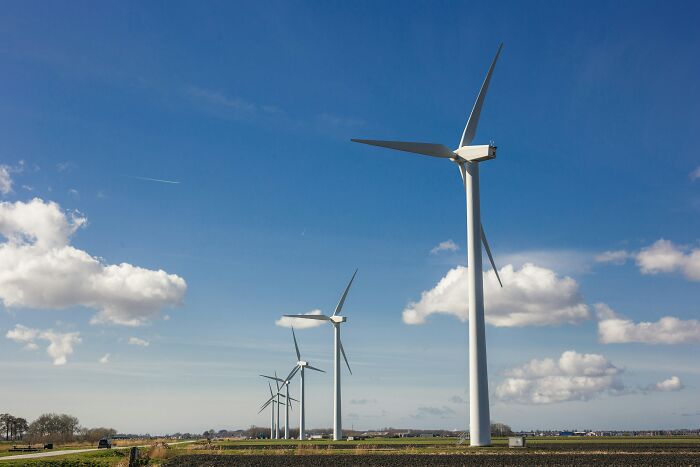
Image source: Kellykeli, Thomas Franke
#37
TV as we know it. The rise of streaming has decimated the Cable TV industry, and they’re still falling. ATSC 3.0, and the emergence of Digital Rights Management will eliminate Over the Air TV, unless someone in government stops it. I can see a very near future where Over The Air TV ceases, and its a myriad of streaming providers for Sports and Local News. Local News and Sports are the only real things keeping Live Network TV afloat. Its only a matter of time before Local News is streaming only and Sports like the NFL grasp the almighty dollar and go streaming. If the NFL told Eagles fans they needed to pony up $29 for the season to watch Eagles games on TV, how many Eagles fans would revolt? Of those who revolted, how many would resort to watching the games at Bars, Restaurants, or that buddy of yours who bought the package?
TV as we know it is ready to go the way of the Card Catalog, Dial Up Internet, and the MP3 player.
Image source: ChefJim27
 Follow Us
Follow Us





